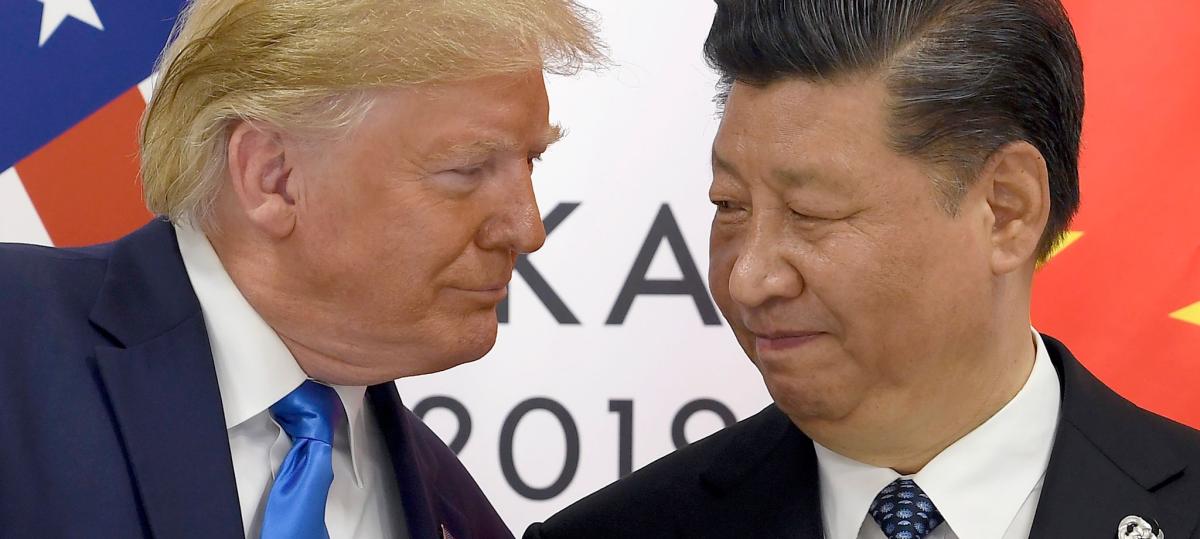Terre rare, the new colonialism of hidden resources (and what the Cobalto del Congo has to do with the war at Rwanda)

Rare lands become diplomatic weapon and new form of colonialism. Think only of the Democratic Republic of the Congo which holds over half of the world cobalt reserves, used in electric and aeronautics vehicles
If the rare earth – fundamental minerals for the technological revolution – have become the new oil, it is very likely that they will contribute to redesigning the geopolitics of the worldupsetting alliances and causing new wars and tensions. Change the « product », the story repeats itself. You can see it in Ukraine, where the price of peace is The division of the riches of the subsoil between the United States and Russia (for the part of the country conquered), in spite of the ideals of democracy and the glorious resistance of an invaded people. But there is not only Ukraine. President Donald Trump has put in the sights Greenlandstroking the hypothesis of a « Arctic partnership » with Russia. And also Africa moves in this direction: trare erre in exchange for protection, weapons, investments.
Congo seeks protection
The initiative of the President of the Democratic Republic of the Congo (RDC) Félix tshisekediwho offered the United States and Europe greater participation in the vast mineral riches of his country In exchange for sanctions and above all protection against Rwandathe nearby fighting that has fomented and organizes invasions for years in the area of large lakes, a source of precious resources.
Rare lands become diplomatic weapon
In practice, Rare lands become diplomatic weapon and new form of colonialismif we consider that the RDC was historically sacked by Belgians and French. The offer is tempting as the country holds Over half of the world cobalt reservesused in electric and aeronautical vehicles. It also provides most of the world coltan, used to feed smartphones and computers. In addition, underlines BBC Africa, the RDC has still unexplored resources, including cobalt itself, gold and copper. According to estimates, the total value of these mineral resources to be exploited is estimated in 24 thousand billion dollars.
The offer would open the doors to Americans and European in a plane for some time now under Chinese influence. The problem is that the EU also approved investments in Rwanda For similar reasons: Pond, tungsten and gold. Furthermore The Rwanda, once friend of France, has approached the USA and Great Britain.
The move of the Congolese president is motivated by security reasons. The offensive periodic of Rwandawhich has very efficient and better equipped militias and armaments, have caused over the years Hundreds of thousands of victims and mass exodus. Paul Kagamefor thirty years in power in Rwanda, has reconstructed the country after the genocide, governs with the iron fist and does not hide expansionist aims in neighboring countries.
According to the Congolese and international press, TSHiseked and Donald Trump would already be ready to sign an agreement aimed at offering theexcuse of the RDC raw materials to American companies. Second media Congo, The proposal would concern a « Exclusive access to Congolese strategic minerals and infrastructure projects, in exchange for safety assistance against the rebels of the M23 supported by Rwanda».
It would be at stake too The operational control of the strategic port of Bananalocated on the north bank of the mouth of the Congo river, in the Atlantic Ocean. Which would facilitate the export of minerals. BBC Africa He underlines the large Congolese lobbying in Washington, the proposal made by the Council of Africa-Stati companies combined with the American Secretary of State, Marco Rubio, on behalf of a Congolese senator. The possible agreement would include an « economic and military partnership ». Washington would train Congolese soldiers « to protect the drawing routes of minerals ». Washington could replace « the ineffective operations of maintenance of the UN peace with direct cooperation in the field of safety between the United States and the Democratic Republic of the Congo ».
Sign of the growing interest of the Trump administration for the Congolese situation, various media report that the American president could appoint Massad Boulos Special envoy for the Region of Great Lakes. The businessman, of Lebanese origin, is also The father -in -law of his daughter, Tiffany Trump. Boulos, who worked in Nigeria at the beginning of his career, could soon visit Kinshasa and Kigali.
Russian and Chinese influence
The match of African minerals is therefore very open. He struck of state and Russian and Chinese influence have already distorted consolidated structures in sub -Saharan Africa, from where the old French friends were forced to pack. The new powers have made collaboration agreements with Beijing and Moscow. China guarantees investments and infrastructures, Russia offers mercenary militias to protect strategic sites and provides armaments. Russia pursues the policy of military alliances and strategic penetrationand for economic interestis on an anti -western function. China is no different with a strategy of financial colonization which forces governments, especially the weakest, to make debt with Beijing.
In 2019, Vladimir Putin hosted 43 African leaders for The first Russia-Africa summit. « We have a lot to offer to our African friends, » said the Kremlin leader. Since then, Russia has increased efforts for sell weapons, extract mineral resources and support faltering regimes. Russia is the largest arms exporter in Africa. Trade has increased since 2014. The volume of Russian military sales on the continent could explain The abstention of 17 African countries to the United Nations General Assembly for the condemnation motions of Ukraine’s invasion. According to Africanews, the main concern of African countries concerns the economic and social consequences connected to wheat imports. « Ukraine is the fifth grain exporter and sends it throughout Africa. North Africa is facing the worst drought of the last thirty years», Reports the South African weekly.
War also influences the price of oil and gas. It is feared that Africa is forced to choose which side to stay on and that « NATO and Russia begin to push African countries to take sides». Or that NATO and Russia are fighting « wars by prosecutor all over the world », also in Africa. The experts interviewed by Africanews are also worried about consequences on international development aidon which many African countries depend. For Dzvinka Kachur, researcher of the University of Stellenbosch, South Africa, interviewed by the Panafricano website, « we can expect that i budgets of states all over the world will be more directed towards militarization than towards the development objectives».
In Sudangold trade knows a great season despite the civil war that has reduced over twenty million people to famine. Gold travels on private jets with united Arab Emirates destination. The production of rich deposits throughout the vast nation, some of which controlled by Signori della War, has exceeded the pre -war levels. The trade blooms thanks to a vast network of smuggling and allows you to pay the weapons that have eliminated tens of thousands of civilians. They multiply Agreements for weapons and gold with Russia, China and Gulf countriessometimes regardless of the factions that will take advantage of it. In mining activities, Russia has been participating for some time and on the front line. As the New York Timesthe mercenaries of the Wagner group would have collaborated with both government and oppositions, but many transactions would be managed directly by Kremlin officials.
Beyond Africa
But there is not only Africa. The competition for the new « black gold » has opened also in the Balkansprecisely in Serbia After the discovery that The subsoil is lithium rich. In the Jadar river valley, on the border with Bosnia, an Australian Anglo multinational – La Rio Tinto – is ready to make A gigantic mine, the largest in Europe. Obviously with the approval of the government and the president Alexander Vuciclovingly supported by the European Commission which in this case put aside the reserves on the Serbian democracy rate and on the bonds with Moscow.








